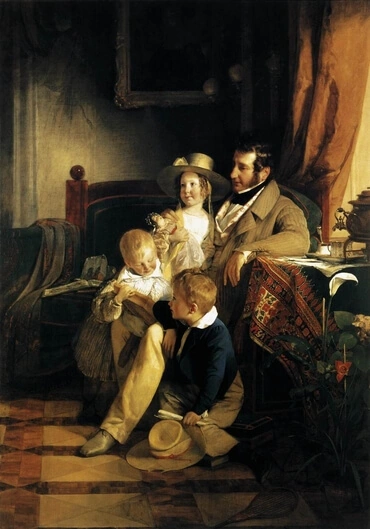1
Y Abraham tomó otra mujer, cuyo nombre fue Cetura;
2
la cual le dio a luz a Zimram, y a Jocsán, y a Medán, y a Madián, y a Isbac, y a Súa.
3
Y Jocsán engendró a Seba, y a Dedán: e hijos de Dedán fueron Asurim, y Letusim, y Leumim.
4
E hijos de Madián: Efa, y Efer, y Hanoc, y Abida, y Elda. Todos estos fueron hijos de Cetura.
5
Y Abraham dio todo cuanto tenía a Isaac.
6
Y a los hijos de sus concubinas dio Abraham dones, y los envió de junto Isaac su hijo, mientras él vivió, al oriente, a la tierra oriental.
7
Y estos fueron los días de vida que vivió Abraham: ciento setenta y cinco años.
8
Y expiró, y murió Abraham en buena vejez, anciano y lleno de días y fue unido a su pueblo.
9
Y lo sepultaron Isaac e Ismael sus hijos en la cueva doble, en la heredad de Efrón, hijo de Zoar heteo, que está enfrente de Mamre;
10
la heredad que compró Abraham de los hijos de Het; allí está sepultado, y Sara su mujer.
11
Y sucedió, después de muerto Abraham, que Dios bendijo a Isaac su hijo; y habitó Isaac junto al pozo del Viviente que me ve.
12
Y estas son las generaciones de Ismael, hijo de Abraham, que dio a luz Agar, la egipcia, sierva de Sara a Abraham:
13
Estos, pues, son los nombres de los hijos de Ismael, por sus nombres, por sus linajes: El primogénito de Ismael, Nabaiot; y Cedar, y Abdeel, y Mibsam,
15
Hadar, y Tema, y Jetur, y Nafis, y Cedema.
16
Estos son los hijos de Ismael, y estos sus nombres por sus villas y por sus palacios; doce príncipes por sus familias.
17
Y estos fueron los años de la vida de Ismael, ciento treinta y siete años; y expiró y murió Ismael; y fue unido a su pueblo.
18
Y habitaron desde Havila hasta Shur, que está enfrente de Egipto, viniendo a Asiria; y delante de todos sus hermanos cayó.
19
Y estas son las generaciones de Isaac, hijo de Abraham. Abraham engendró a Isaac;
20
y era Isaac de cuarenta años cuando tomó a Rebeca, hija de Betuel, el arameo, de Padan-aram, hermana de Labán, el arameo, por su mujer.
21
Y oró Isaac al SEÑOR por su mujer, que era estéril; y lo aceptó el SEÑOR, y concibió Rebeca su mujer.
22
Y los hijos se combatían dentro de ella; y dijo: Si es así ¿para qué vivo yo? Y fue a consultar al SEÑOR.
23
Y le respondió el SEÑOR: Dos naciones hay en tu vientre, y Dos pueblos serán divididos desde tus entrañas; mas un pueblo será más fuerte que el otro pueblo, y el mayor servirá al menor.
24
Y cuando se cumplieron sus días para dar a luz, he aquí mellizos en su vientre.
25
Y salió el primero bermejo, y todo él velludo como una pelliza; y llamaron su nombre Esaú.
26
Y después salió su hermano, trabada su mano al calcañar de Esaú; y fue llamado su nombre Jacob. Y era Isaac de edad de sesenta años cuando Rebeca los dio a luz.
27
Y crecieron los niños, y Esaú fue varón sabio en la caza, hombre del campo; Jacob, empero, era varón entero, que estaba en las tiendas.
28
Y amó Isaac a Esaú, porque comía de su caza; mas Rebeca amaba a Jacob.
29
Y guisó Jacob un potaje; y volviendo Esaú del campo cansado,
30
dijo a Jacob: Te ruego que me des a comer de eso bermejo, pues estoy muy cansado. Por tanto fue llamado su nombre Edom.
31
Y Jacob respondió: Véndeme hoy en este día tu primogenitura.
32
Entonces dijo Esaú: He aquí yo me voy a morir; ¿para qué, pues, me servirá la primogenitura?
33
Y dijo Jacob: Júrame hoy en este día. Y él le juró, y vendió a Jacob su primogenitura.
34
Entonces Jacob dio a Esaú del pan y del guisado de las lentejas; y él comió y bebió, y se levantó, y se fue. Así menospreció Esaú la primogenitura.







